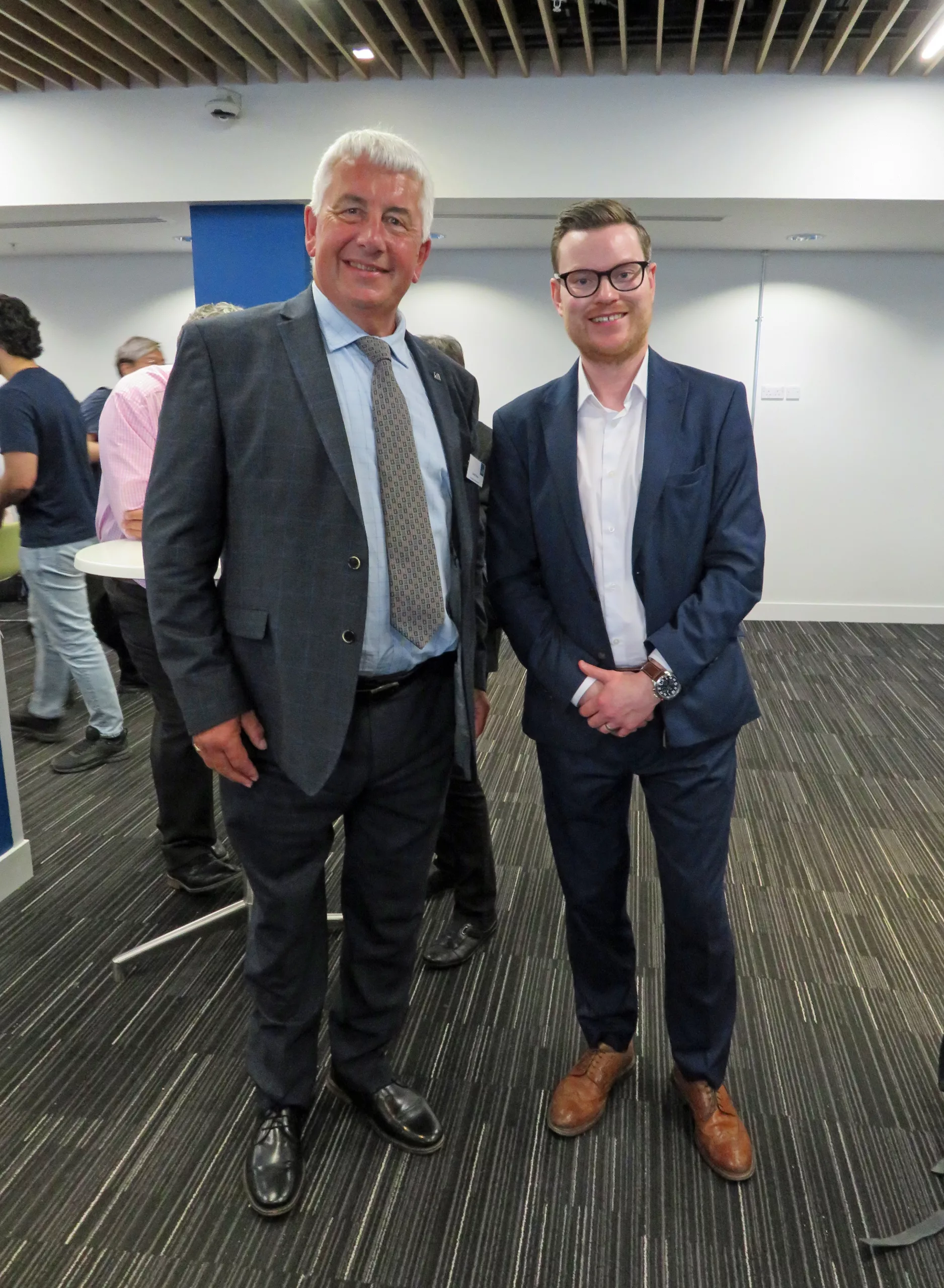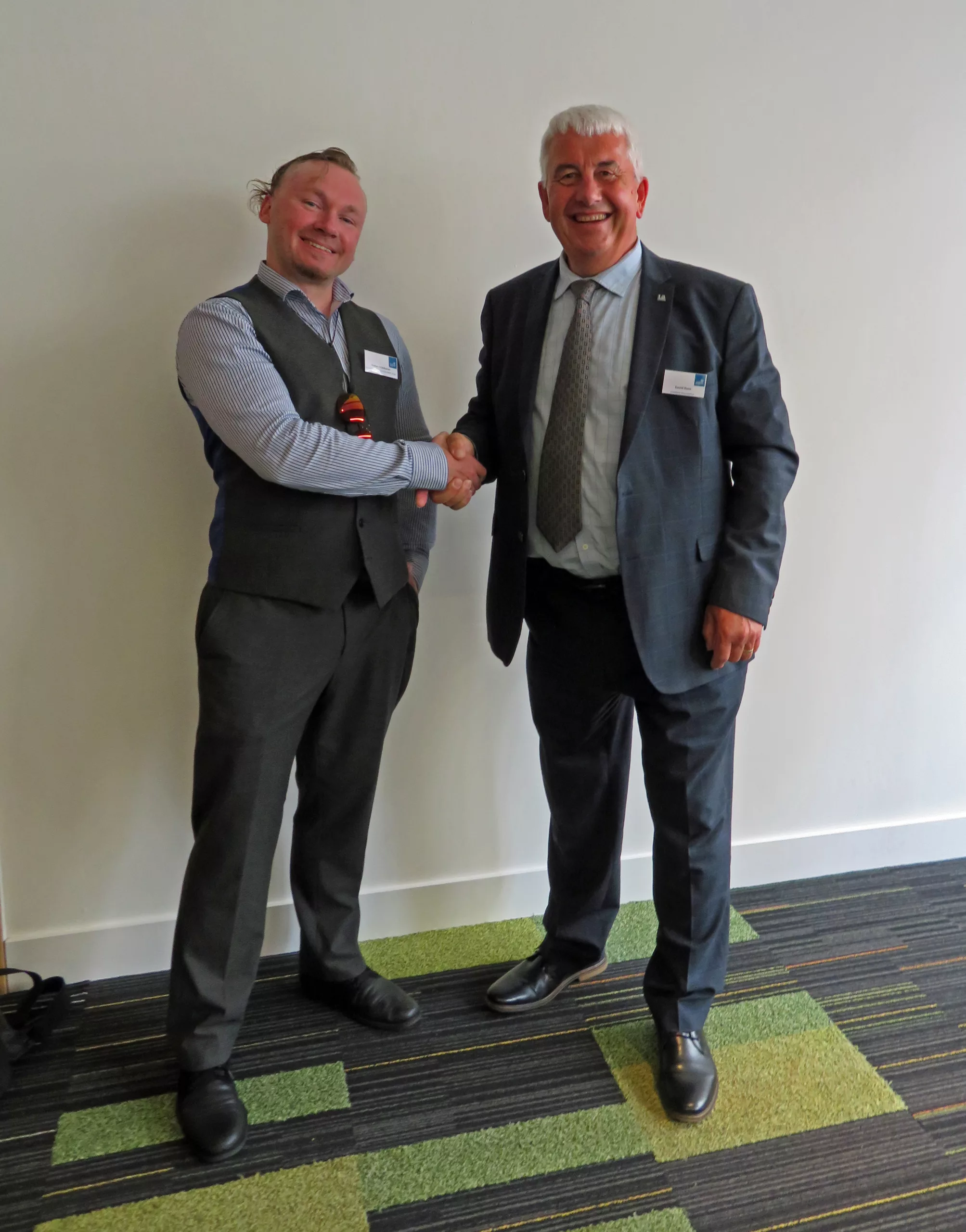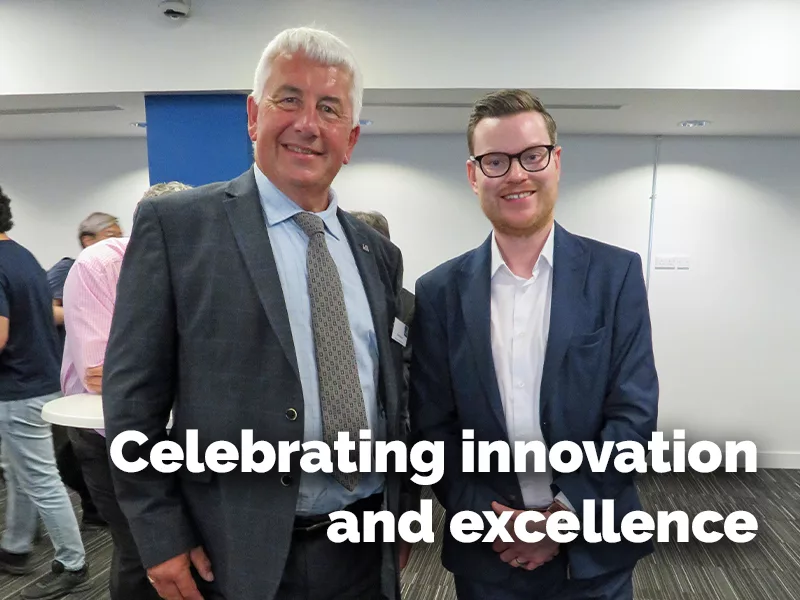In my last blog, I described a visit to Strathclyde University in March, where we were invited to deliver a presentation on the work of the LA to first-year students on the University’s Prosthetics and Orthotics degree course. Well, that was so well received that we were invited back to attend a very special event; a double anniversary celebration. Strathclyde University were marking the 60th anniversary of the founding of their Biomedical Engineering Department and the 50th anniversary of the establishment of their Prosthetics and Orthotics degree programme.
And this was indeed a cause for celebration! I was already aware of the preeminent status of Strathclyde’s Prosthetics and Orthotics degree programme as it is rightly recognised worldwide as one of the best training and education programmes available. Graduates of their course can gain entry to the profession in any country where opportunity is available. But what I did not fully appreciate is the world-leading work that is being undertaken in the fascinating fields of biomedical engineering here in Glasgow.
The morning’s programme focused on biomedical engineering and I was frankly astonished at the range of research undertaken and recent achievements of the students. Subjects included innovation in flow cytometry (understanding diseases, one cell at a time), from organ printing to the future of surgery, and perhaps the most interesting subject of the day; personalising antibiotic prescription.
Innovation is the key to the success of biomedical engineering at Strathclyde University and this was more than borne out by the presentation given by Dr Stuart Hannah. With the support of the University, Stuart and a small number of colleagues have formed a company, Microplate DX, to prevent and control the spread of antimicrobial resistance (AMR) worldwide. In simple terms; to prevent resistance to the antibiotics that are so widely used to treat a wide range of diseases and infections. They are developing the science whereby doctors can rapidly assess the suitability of particular antibiotics at the bedside, enabling the optimum (narrow-spectrum) antibiotic to be prescribed by a clinician in minutes rather than days. And this is important for many reasons: there could be 10 million estimated deaths from AMR by 2050, that’s more than more than cancer and diabetes combined.

To further illustrate how important is this area of healthcare, Dr Hannah described their research into a very common health problem – urinary tract infections (UTI). Of the many life-threatening drug-resistant infections, UTIs are a major cause of morbidity and mortality. They have established that 1 in 4 sepsis cases can be traced back to an earlier, poorly-treated UTI and there is a pressing need for a rapid diagnostic test to identify the optimum antibiotic treatment for a patient’s infection as quickly as possible. The tests that Dr Hannah and his colleagues are developing have the potential to be a ‘game changer’ in this vital area of healthcare.
The afternoon programme was focused on prosthetics and orthotics, with a fascinating presentation on the international development in these fields. We were treated to a global journey describing the work that the University’s graduates undertake in less developed corners of the world, and the message that so many people living with limb loss are being helped to lead more rewarding and productive lives as a direct result of this work. The day concluded with a talk for an old friend of the LA, Roy Bowers, Principal Teaching Fellow, at the University’s National Centre for Prosthetics and Orthotics. Roy’s theme was: 50 years of Transforming Lives – what does the future hold? A very good question!

At the conclusion of this marvellous celebration event, we can be assured that the future of prosthetic training is in very good hands. The LA has for many years been privileged to present prizes to the best-graduating student and the best academic performance from a first-year student on the course. And imagine my surprise when I bumped into one of the past recipients of these prizes at this event. I personally presented the prizes for the 2018/19 academic year and the best first-year student was Rokas Staskunas. Having successfully completed his degree, he is now studying for a masters degree and he was very pleased to renew our acquaintance! Here’s to the next fifty years of prosthetic and orthotic excellence!

